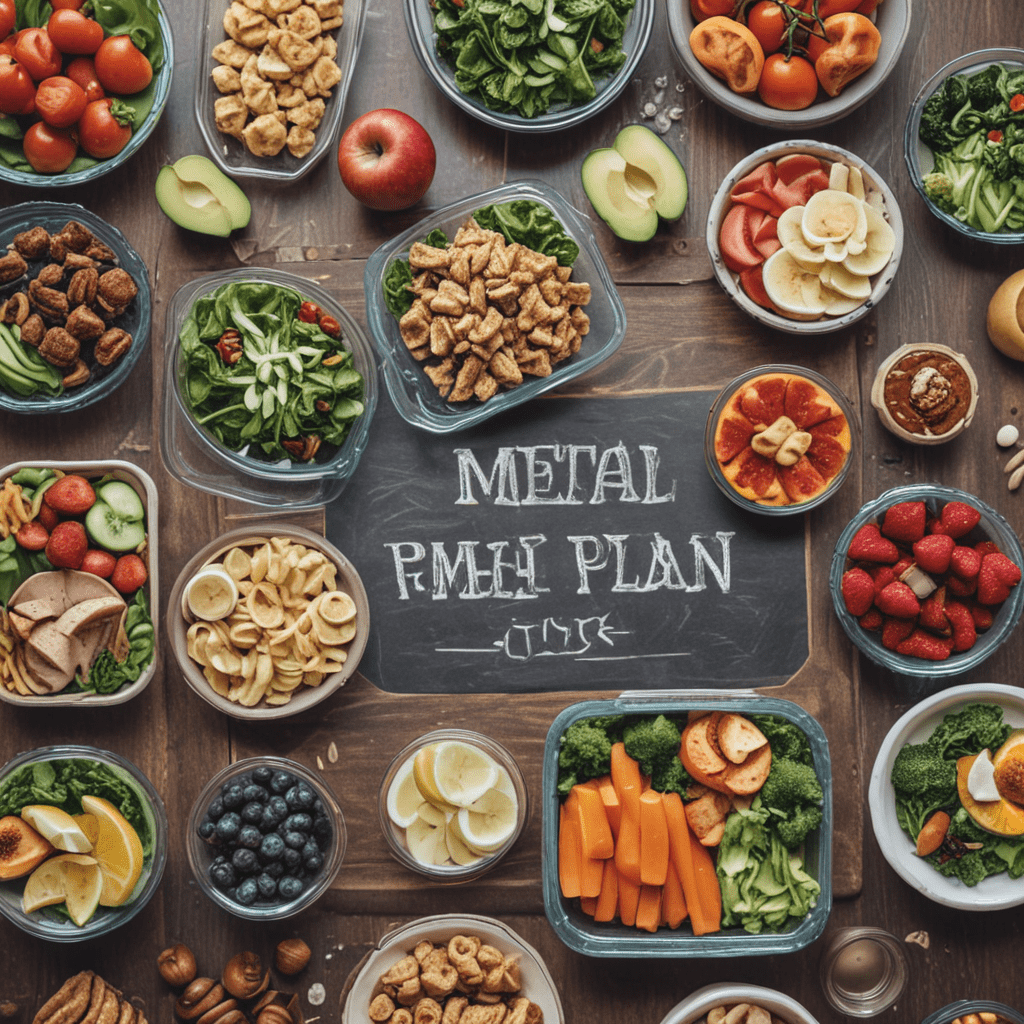
Introduction: The Importance of Meal Planning
Meal planning is a crucial aspect of maintaining a healthy lifestyle. It provides structure and organization to your diet, ensuring you consume the necessary nutrients for optimal well-being. By planning your meals ahead of time, you can avoid impulsive eating, reduce food waste, and save time and money. A well-structured meal plan can support various health goals, including weight management, improved fitness, and disease prevention.
Determining Calorie Needs
The first step in creating a healthy meal plan is determining your calorie needs. This varies based on factors such as age, sex, activity level, and weight loss or gain goals. There are numerous online calculators and apps available to help you estimate your daily calorie requirement. Once you know your calorie needs, you can ensure your meal plan provides the appropriate amount of energy to fuel your body.
Setting Macros: Balancing Carbohydrates, Protein, and Fat
The next step is to establish macronutrient (macro) ratios that align with your health objectives. Macros refer to carbohydrates, protein, and fat, which are the primary energy sources for the body. The ideal macro balance varies depending on individual needs and preferences. However, a well-rounded meal plan typically includes a balance of all three macros. Carbohydrates provide energy, protein supports muscle growth and repair, and fat aids in hormone production and cell function.
Planning Meals Around Nutrient-Rich Foods
The foundation of a healthy meal plan lies in nutrient-rich foods. These foods provide essential vitamins, minerals, and antioxidants that support various bodily functions. When planning meals, prioritize whole fruits, vegetables, lean protein sources, and whole grains. These nutrient-dense options offer a wide range of health benefits, including improved digestion, reduced inflammation, and enhanced cognitive function.
Incorporating Variety and Color
Variety and color are key elements of a healthy meal plan. Consuming a diverse range of foods ensures you obtain a broad spectrum of nutrients. Different fruits, vegetables, and whole grains offer unique combinations of vitamins, minerals, and phytonutrients. Incorporating a variety of colors into your meals not only enhances the nutritional value but also makes your meals more visually appealing and enjoyable.
Hydration and Water Intake
Maintaining adequate hydration is vital for overall health and well-being. Aim to drink plenty of water throughout the day, especially before and after meals. Water aids in digestion, regulates body temperature, and transports nutrients and oxygen throughout the body. Consider carrying a reusable water bottle with you to stay hydrated wherever you go.
Meal Frequency and Portion Control
The frequency and size of your meals can impact your weight management and overall health. Determine the meal frequency that aligns with your schedule and energy levels. Some people may prefer to eat three larger meals per day, while others may benefit from smaller, more frequent meals. Be mindful of portion sizes to avoid overeating. Use measuring cups and spoons or a food scale to ensure you're consuming appropriate amounts of food.
Meal Preparation: Cooking Techniques and Time Management
Meal preparation can significantly enhance the success of your meal plan. Plan your meals ahead of time to avoid last-minute unhealthy choices. Employ healthy cooking techniques such as grilling, steaming, or baking instead of frying or using excessive amounts of oil. Utilize time-saving strategies like meal prepping on weekends or using slow cookers to make meals more convenient during the week.
Mindful Eating and Listening to Body Cues
Mindful eating involves paying attention to your food and eating slowly, without distractions. Take the time to savor each bite and notice how your body responds to different foods. Listen to your body's hunger and fullness cues. Eat when you're genuinely hungry, and stop when you're satisfied. Avoid overeating or eating out of boredom or stress.
Sticking to the Plan and Making Adjustments
Consistency is key to a successful meal plan. Stick to your plan as much as possible, but don't be afraid to make adjustments if necessary. Monitor your progress and make changes as needed to ensure your meal plan continues to support your health goals. If you find yourself struggling, seek support from a registered dietitian or healthcare professional.
Frequently Asked Questions (FAQs)
Q: How often should I create a new meal plan?
A: It's recommended to review and adjust your meal plan every few weeks or months to ensure it aligns with your changing needs and preferences.
Q: Can I incorporate cheat meals into my meal plan?
A: Occasional cheat meals can be incorporated into a healthy meal plan in moderation. However, it's important to prioritize nutrient-rich foods most of the time.
Q: What are some healthy snacks to include in my meal plan?
A: Healthy snacks include fruits, vegetables, nuts, seeds, yogurt, and whole-grain crackers.
Q: How can I stay motivated to stick to my meal plan?
A: Set realistic goals, find an accountability partner, and reward yourself for progress.


